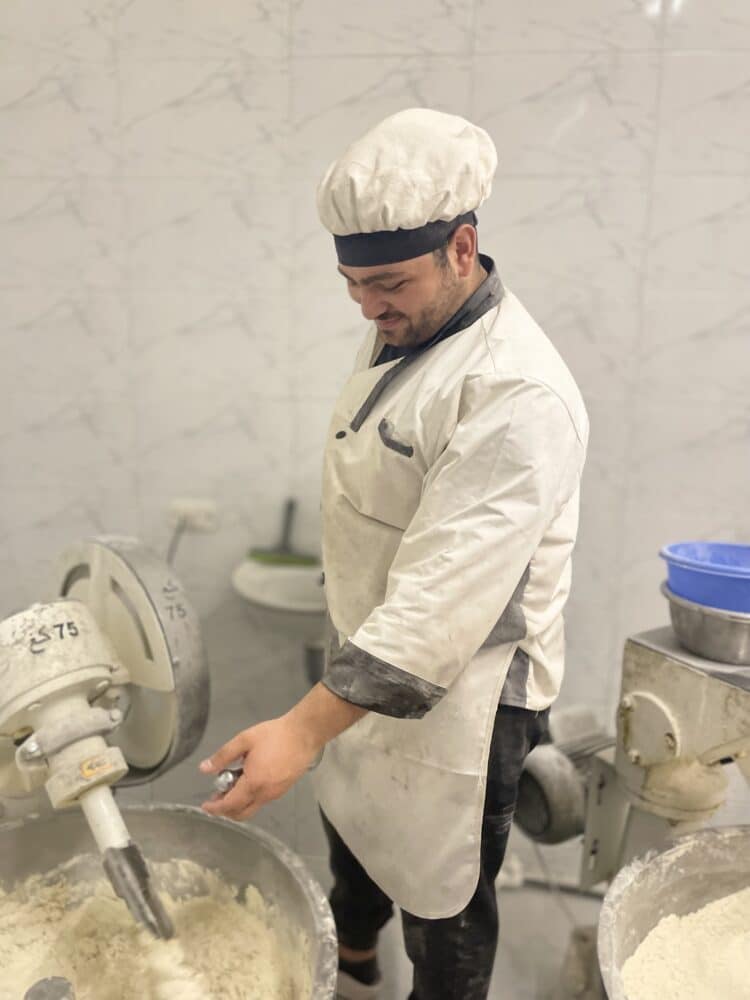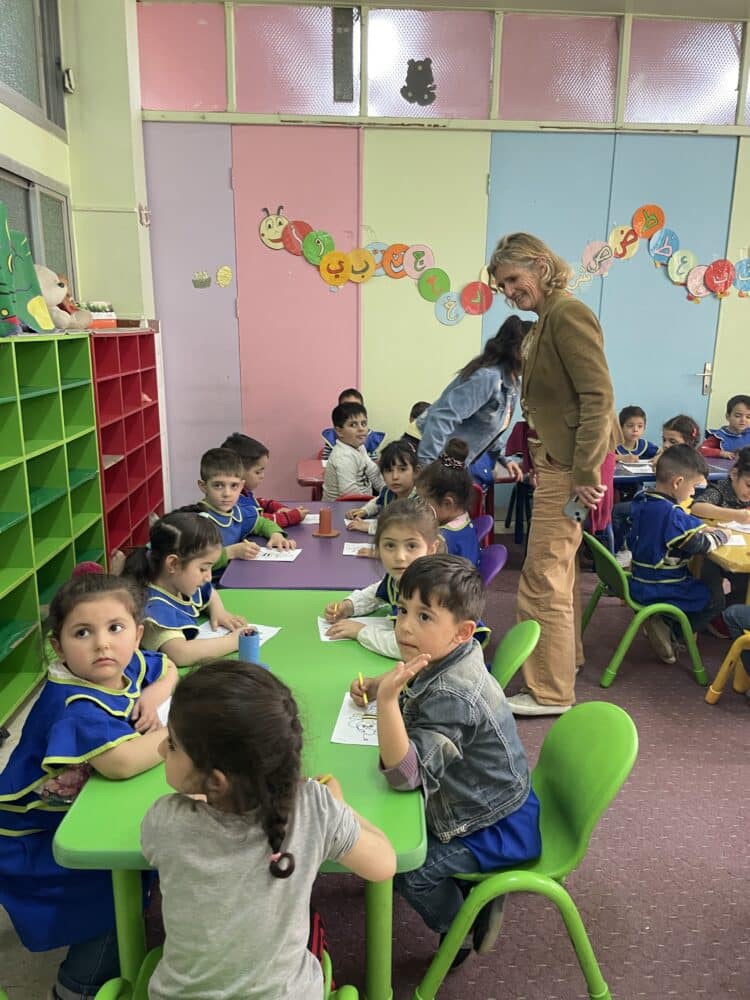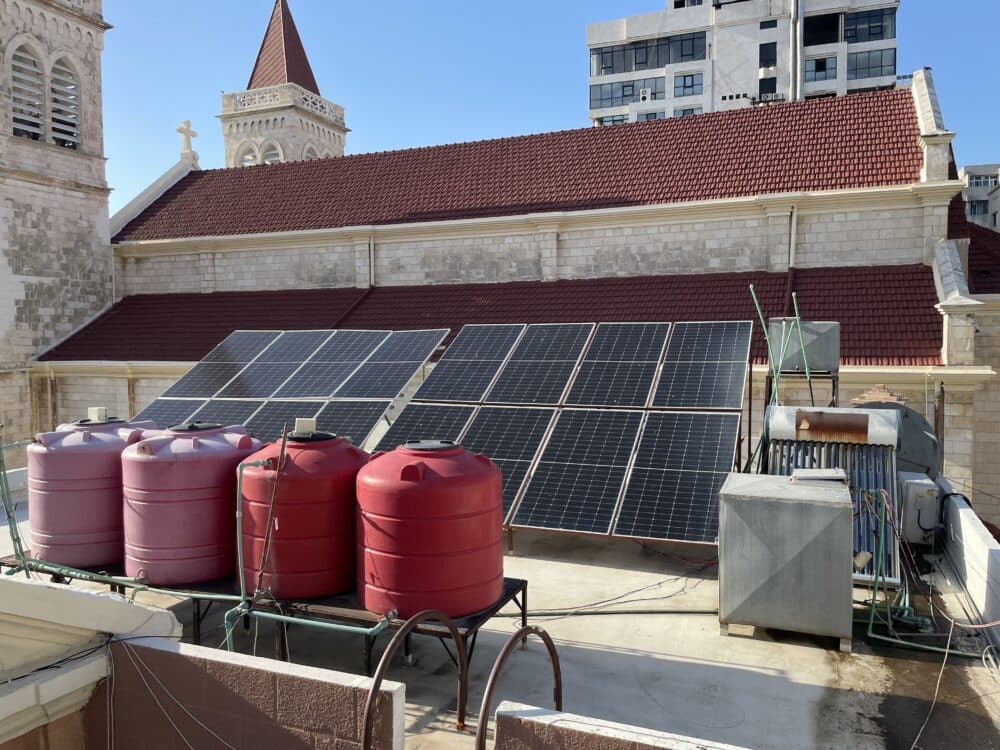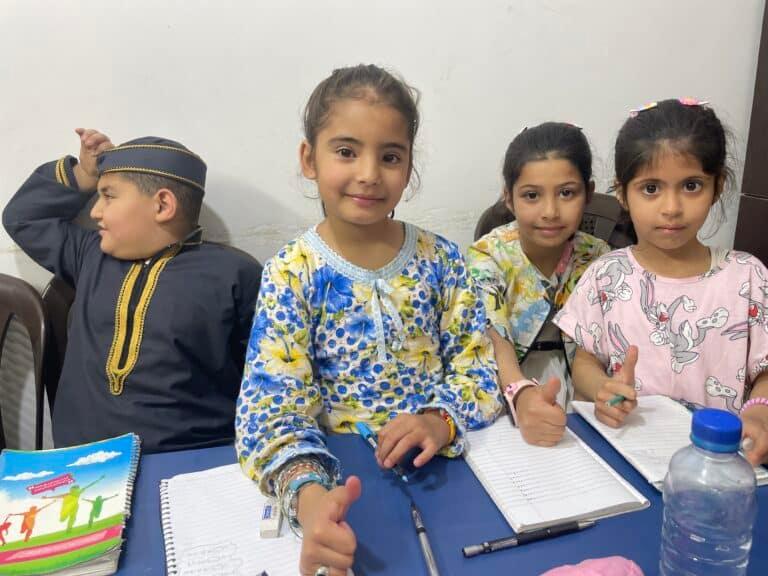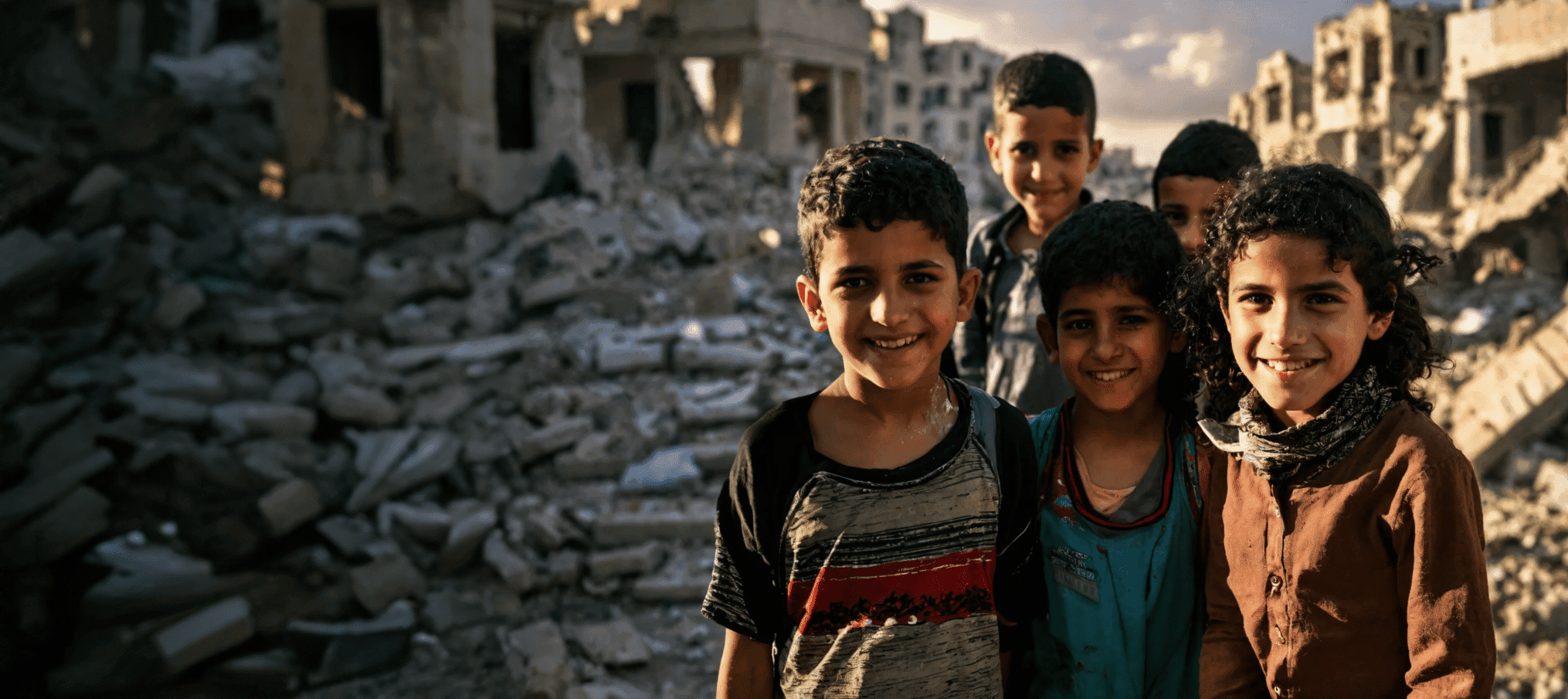"Hope and despair": this is the dichotomy that encompasses all the sense of powerlessness that one feels in the face of a reality that shows itself as it is, without offering any support to the desire to find a simplifying synthesis of the disturbing elements.
Those who return home feel both despair and hope, Syria is as destroyed as it is alive: the two realities coexist without resolving each other, in a combination that is difficult to accept but necessary to recognize.
We spoke with Ana De Estrada and Gabriella Solaro, our collaborators who have just returned from an intense trip to Syria, to tell us what they have seen and what stories they bring home with them: starting from Beirut they reached Latakia, Aleppo and Hama, and finally landed in Damascus. The purpose of the mission was to Verify and get to know the projects in person that Pro Terra Sancta finances and the people who make them alive and possible: to monitor the progress of the activities, to talk to the local staff and to the beneficiaries of the projects, to know their stories in order to be able to tell them once they return home. They had the opportunity to meet many families, actual or potential beneficiaries of the activities proposed by the Association, and to experience first-hand the local reality and the effects of our work.
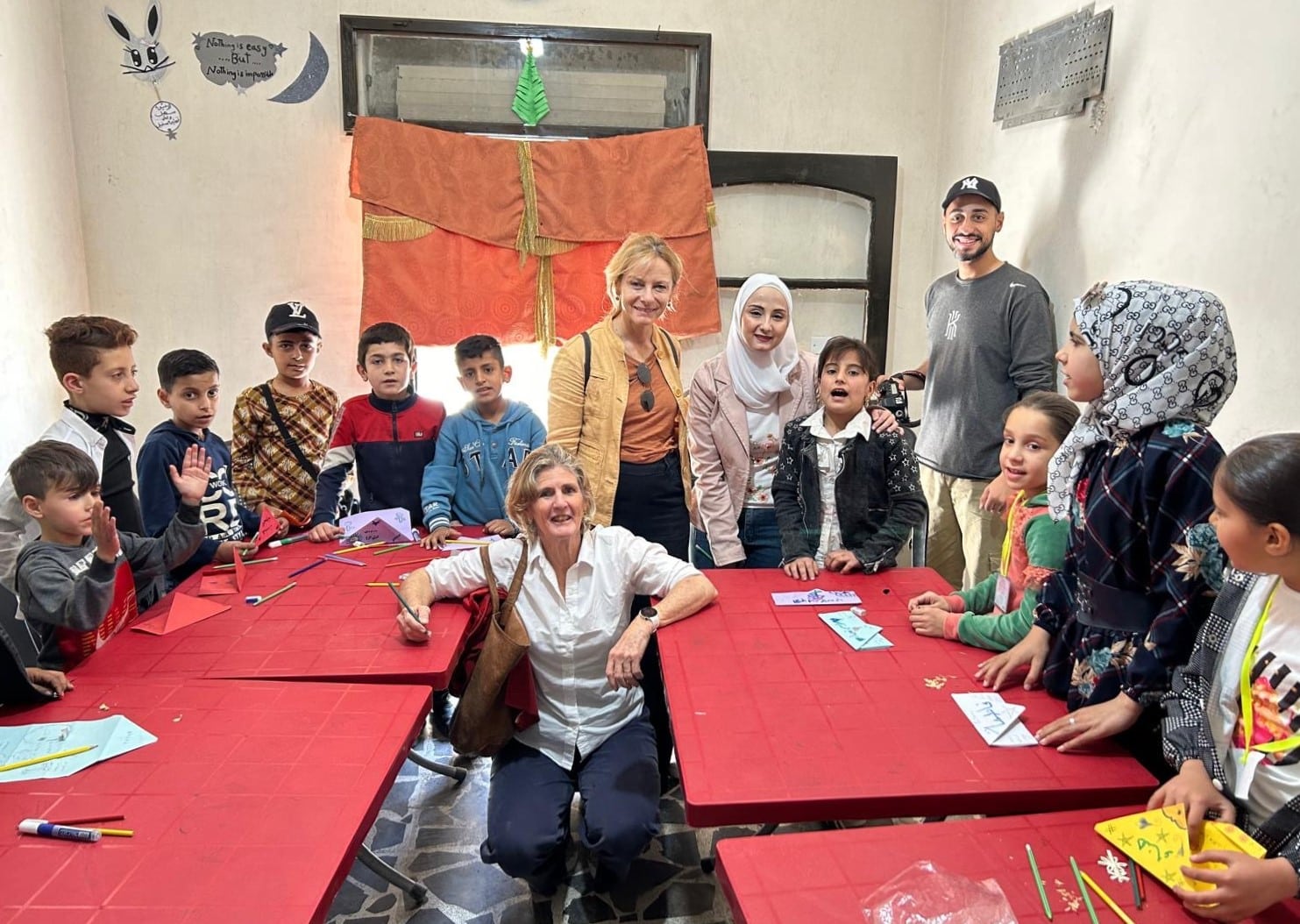
Syria of darkness and rubble
"I saw rubble, lots of rubble! Entire villages razed to the ground, abandoned because living there is impossible, villages that once, you can understand, were full of life. There is no one left, those who could have gone away, abroad, in search of a better future; others have moved internally, to less affected cities."
Our collaborators tell us about a Syria invaded by destruction and emptiness: abandoned houses, deserted villages, people fleeing their homes and their countries. In particular, it is the solitude of Aleppo that is striking: it is a city that impresses with the beauty that can be sensed behind the rubble, the complete destruction allows you to see in filigree the opulence that once shone in the streets of the city. Today very little shines: when evening falls, a thick darkness falls, because in Aleppo – and in several other places in the country – there is no electric light for most of the hours of the day.
There are dozens of empty houses in Syrian cities, left behind by those who have fled never to return. In addition to the state of abandonment in which they find themselves, what is striking is the contrast with the very high number of people who, displaced from the occupied villages, have nothing and cannot pay rent: dozens of deserted houses and dozens of people who cannot afford to live in them, a paradox hard to accept.
Hope and despair
"They were ten very intense days, full of encounters, of controversial feelings: at times I fell into despair seeing the enormity of the destruction, the difficulties of daily life, the fatigue of the heads of families, the anger of young people, the darkness and abandonment of the cities. But I returned home with a lot of hope, because I saw in the eyes of many Syrians a great desire to live, to be reborn, to believe in themselves and in their country."
Both Gabriella and Ana, telling us about the journey, uttered the word "hope" several times and with conviction, just after speaking of a land reduced to dust. It seems like a paradox, but they explain to us that in fact it is not: staying about ten days and talking to many people, their gaze was enriched with new panoramas, sweeping beyond the rubble on which it had immediately rested. Above all, the comparison with young people broadens the field of vision, framing a hopeful and determined population.
Before the interview, Ana sent us a text in which she transposed her first impressions after returning from the trip, from which the sentences that open the paragraphs of this article are taken. He titled it Hope and Despair , a dichotomy that encompasses all the sense of powerlessness that one feels in the face of a reality that shows itself as it is, without offering any support to the desire to find a simplifying synthesis of the disturbing elements. Those who return home feel both despair and hope, Syria is as destroyed as it is alive: the two realities coexist without resolving each other, in a combination that is difficult to accept but necessary to recognize.
The help offered by the projects active in Syria is a drop in the ocean, but every drop makes a difference: our projects give back a bit of normality to local people, holding hands those who courageously choose to stay and try to imagine a different present and future. Among these there are certainly the young people who participate in the WIP project, active in Syria in Damascus and Aleppo: the very fact that they participate and invest in a project aimed at financing new local businesses shows how firmly they believe in themselves and in their country. They only ask to be looked at and to be seen by a West that ignores them, does not see them.
The impact of Pro Terra Sancta's projects
"Syrians cannot and do not want to fall into despair, they are proud of their history and cultural heritage and are ready to get involved to restart their country."
The first project that Ana and Gabriella tell us about with enthusiasm is the canteen in Aleppo: they tell us about kitchens teeming with people and scents. The canteen offers one thousand three hundred meals a day, and in addition to this it prepares food parcels which are distributed at home to a hundred families: they are the beneficiaries who cannot go to the canteen in person, due to disabilities or walking problems – and often these are the poorest, forced to live on the upper floors because they are less expensive, due to the absence of elevators. Thanks to the double system of hot dishes and food parcels, the canteen really reaches everyone: it is a virtuous and well-organized system, where an efficient and dedicated staff works.
They were also very impressed by the activity of the Franciscan Care Center, which they define as a "center of excellence." It is a place that really makes a difference, because it is the only real space for recreation and educational and psychological support that Aleppo offers; Here children and young people find a serene environment in which they can follow the stimuli offered to them by giving the best of themselves. Gabriella and Ana emphasize the great passion and care that FCC teachers put into their work: they are able to grasp the most difficult and painful points of children's daily lives, and to act in the right way to help them smile again.
Rasha Kashmini, a professor of music therapy, invited them to attend a class that was held outside, among the trees and the blue sky. The lesson invited the children to listen to the music of nature, closing their eyes, and to hear what the sounds of the world arouse in them; After a while, the children relaxed and began to talk, following a communicative urgency that was exciting to see and hear.
Psychological support is also at the heart of the activities of the centres of Un nome un futuro, which offer various spaces for after-school activities, psychological support, and help for single mothers. The spaces of the centers are very beautiful and well-kept, slightly restricted due to the number of people who turn to them; this gives us an idea of how deep and widespread the desire to open up to help, the desire to start again, is deep and widespread. Ana and Gabriella tell us about the eyes In their eyes you can see all the fire and the desire to grow, to become somebody: a doctor, perhaps, or a professor, a cook... The future is almost tangible in these looks, who don't give up on the idea that there is no possibility for them: they have hope, and it is wonderful to be able to help them to have it and to make it achievable.
They also saw up close the project to install solar panels in homes to give families access to electricity, heating and hot water. Although it may not seem, at first glance, to be one of the most "alive" and most "human" initiatives, it is the one that has touched both of them most deeply. "Going there, I realized how an apparently technical element can really change a life," Ana explains: although a solar panel certainly cannot solve the situation of poverty in which most Syrians live, it can change their daily lives.
For a family that lives in the dark, the possibility of turning on a light bulb and doing a washing machine every now and then is a beacon in the night, and becomes the possibility of acquiring a new independence: both women remember with emotion a family that, thanks to electric light, regained its space, when the children were finally able to light a lamp to do their homework in their room without having to crowd together with their siblings, parents, grandparents, around an oil lamp that illuminates everything with a subtle light.
Gabriella and Ana come back from the trip full of desire to continue to work on the projects: "Being able to see all these things live has satisfied us and made us more aware of the effects of the work we do every day; It was also nice to see the organization of the activities of Pro Terra Sancta, because it is tangible that at the basis of every choice there is the to function at our best, to act for the good of our beneficiaries."
